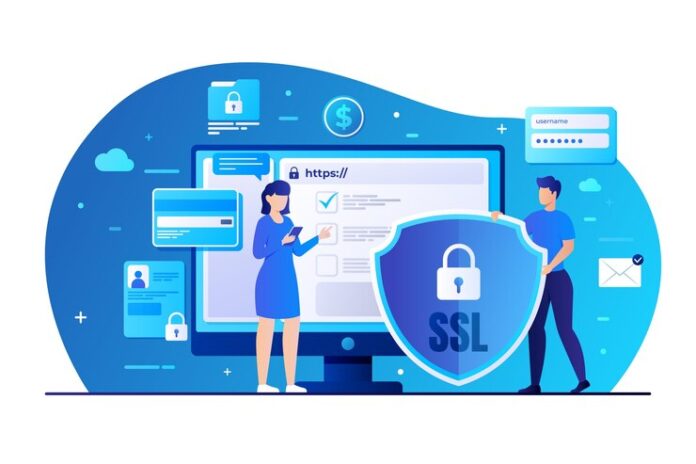In today’s digital age, ensuring the security of your website hosted on a Virtual Private Server (VPS) is of paramount importance. Cyber threats are constantly evolving, making it crucial for site owners, system administrators, and web developers to stay vigilant and proactive in securing their online presence. This article aims to provide a comprehensive guide to protecting your VPS-hosted website from various cyber threats, including firewalls, SSL certificates, and DDoS attack protection.
Introduction
The Relevance of Cybersecurity for Website Owners With the increasing number of cyber-attacks, ensuring the security of your VPS is critical. Cyber threats such as DDoS attacks, hacking attempts, SQL injections, and more can compromise your website’s integrity, steal sensitive information, and damage your reputation.
Overview of Major Threats
- DDoS Attacks: Overwhelm your server with traffic, causing it to crash.
- Hacking: Unauthorized access to your server to manipulate or steal data.
- SQL Injections: Exploit vulnerabilities in your database queries to gain access to your data.
- XSS (Cross-Site Scripting): Inject malicious scripts into your web pages to target users.
Main Content
VPS Security Basics:
- Choosing a Reliable Hosting Provider: Ensure you select a reputable hosting provider with a strong track record in security. Look for providers that offer robust security features, regular updates, and excellent customer support.
- Operating System and Configuration:
- Opt for a secure and stable operating system.
- Minimize the number of services running on your server to reduce potential attack vectors.
- Regularly update and patch your OS and applications to protect against known vulnerabilities.
- Software Updates: Keep all software, including the operating system, control panel, and applications, up to date to prevent exploitation of known vulnerabilities.
Protection Against DDoS Attacks:
- What is a DDoS Attack? A Distributed Denial of Service (DDoS) attack aims to disrupt the normal traffic of a targeted server, service, or network by overwhelming it with a flood of internet traffic.
- Methods of Protection:
- Filters: Implement network traffic filters to block malicious traffic.
- Web Application Firewalls (WAF): Use WAF to filter and monitor HTTP traffic between a web application and the Internet.
- Protection Providers: Consider using third-party DDoS protection services like Cloudflare or Akamai.
Firewalls:
- Purpose of a Firewall: A firewall acts as a barrier between your server and potential threats, controlling incoming and outgoing traffic based on predetermined security rules.
- Configuring Rules:
- Set up rules to allow only necessary traffic.
- Block any suspicious or unnecessary traffic.
- Popular Firewalls:
- iptables: A powerful and flexible firewall tool for Linux.
- CSF (ConfigServer Security & Firewall): A popular firewall application for cPanel servers.
Protection Against Hacks:
- Strong Passwords and Two-Factor Authentication (2FA):
- Use complex passwords and change them regularly.
- Implement 2FA to add an extra layer of security.
- Restricting SSH Access:
- Limit SSH access to specific IP addresses.
- Use SSH keys instead of passwords for authentication.
- Brute Force Protection: Implement tools like Fail2ban to protect against brute force attacks by monitoring failed login attempts and blocking offending IP addresses.
SSL Certificates:
- Why SSL Certificates are Necessary: SSL (Secure Sockets Layer) certificates encrypt data transmitted between your website and its visitors, ensuring that sensitive information is protected.
- Types of SSL Certificates:
- Domain Validated (DV): Basic level of validation.
- Organization Validated (OV): Higher level of validation with company information.
- Extended Validation (EV): Highest level of validation with a green address bar.
- How to Install SSL Certificates:
- Purchase or obtain a free SSL certificate.
- Install the certificate on your server through your control panel or manually.
- Configure your web server to use HTTPS.
Backups:
- Importance of Regular Backups: Regular backups ensure that you can restore your website to a previous state in case of data loss, hacking, or other disasters.
- Backup Strategies:
- Automated backups to ensure regular and consistent backups.
- Offsite backups to protect against local disasters.
Additional Security Measures:
- System Monitoring: Regularly monitor your server for suspicious activity or anomalies.
- Intrusion Detection Systems (IDS): Implement IDS to detect and alert you of potential intrusions.
- Log Management: Keep detailed logs of server activity for auditing and troubleshooting purposes.
Conclusion
Summary of Key Protection Methods: To protect your VPS-hosted website, ensure you choose a reliable hosting provider, keep your software updated, implement strong passwords and 2FA, use firewalls, protect against DDoS attacks, install SSL certificates, and regularly back up your data.
Further Security Enhancement Tips: Stay informed about the latest cybersecurity trends and continually assess and improve your security measures. Educate yourself and your team on best practices for maintaining a secure environment.
Call to Action for Ongoing Security Monitoring and Updates: Remember, cybersecurity is an ongoing process. Regularly monitor your systems, update your security measures, and stay vigilant to protect your website from emerging threats.
Key Terms and Concepts
- VPS: Virtual Private Server.
- DDoS Attack: Distributed Denial of Service Attack.
- Firewall: A security system that controls incoming and outgoing network traffic.
- SSL Certificate: Secure Sockets Layer Certificate.
- SQL Injection: A type of cyber attack that manipulates database queries.
- XSS: Cross-Site Scripting, a security vulnerability in web applications.
- Backup: A copy of data stored separately for recovery purposes.
- Intrusion Detection Systems (IDS): Systems designed to detect unauthorized access or anomalies.
- Two-Factor Authentication (2FA): An additional layer of security requiring two forms of verification.
By following the guidelines outlined in this article, you can significantly enhance the security of your VPS-hosted website, safeguarding it against various cyber threats and ensuring a secure experience for your visitors.
P.S. more information about “How to Protect Your VPS” and month plans on VPS – https://deltahost.com
